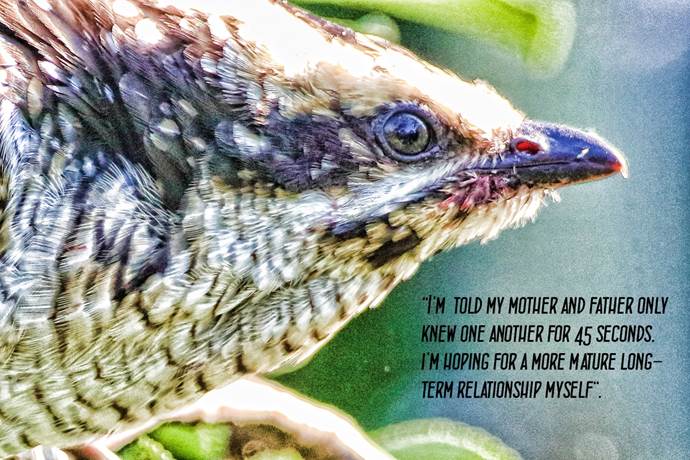Each year has been different with koels, but I have noticed a trend. A few years ago when they first
appeared in numbers prolonged keeling was the pattern. It was not unusual for a bird to call for 20 minutes at a time, typically from the top of a favourite tree. There were few females about. Over the years there was a change to the present pattern. While
there is periodic, relatively brief koeling, the pattern now is what I might refer to as ‘fugitive calling’: a sudden ‘wirra-wirra’ with the bird near at hand that is then repeated by the same or a different bird further off, and then sometimes further away
again. The sequence sometimes involves a ‘kek-kek’ instead or as well. These moving (fugitive) callers are not often seen.
I would speculate that the prolonged koeling was a sign of the scarcity of females, while the present
pattern indicates many more koels in the local area and certainly more females. Of course the more females the more chicks, a limiting factor to this trend being, presumably, the number of late-nesting wattlebird pairs. Will the local wattlebirds develop
some kind of defence in response to the koel invasion? That, I think, was the subject of Virginia Abernathy’s researches. Perhaps koel behaviour will continue to evolve as well.

From: Jack
and Andrea Holland [
Sent: Monday, 1 January 2018 5:47 PM
To: 'Tyrie Starrs';
Subject: RE: [canberrabirds] Backyard Bird of the Year (so Far)
Thank you Tyrie, in what suburb are you, and do you know the host (I’m assuming Red Wattlebird)?
As numbers seem to be increasing every year I’m again keeping a tally of Koel chicks. With 6 that
I’m now aware of already we’re off to a flying start compared with last year when of a total of close to 60 the first was not reported until early January. Based on the many contributions from chat line subscribers etc, this has been written up in a paper
which has been accepted for Canberra Bird Notes and will appear in the next issue.
Many thanks
Jack Holland
From: Tyrie
Starrs
Sent: Monday, 1 January 2018 4:40 PM
To: Geoffrey Dabb <>;
Subject: Re: [canberrabirds] Backyard Bird of the Year (so Far)
Great shot! We spent an hour in the sun this morning waiting for the the one being fed in our backyard to emerge from its tree for a photo like that. Only after we gave up and put the cameras away did it make a very brief appearance in full view!
From: Geoffrey
Dabb <>
Sent: Monday, 1 January 2018 12:04:52 PM
To:
Subject: [canberrabirds] Backyard Bird of the Year (so Far)

